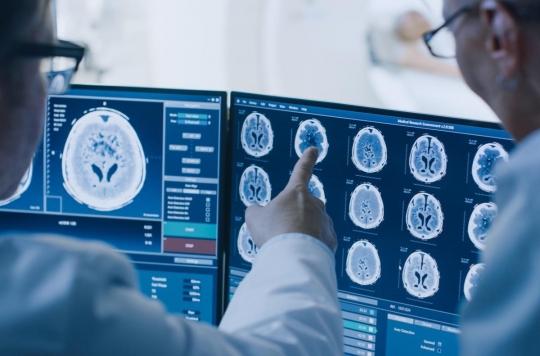Radiation therapy changes the behavior of immune cells. In a trial on mice, researchers succeeded in reprogramming them to improve the effectiveness of the treatment, and therefore the survival rate.

Cancer can be treated by different methods, some of which are combined. In the majority of cases, the tumor is first removed by surgery and the patient then undergoes radiotherapy and/or chemotherapy. Other cancers are treated by what is called targeted therapy, targeting only certain cells, or by immunotherapy or hormone therapy. All of these healing techniques can have side effects. For example, radiation therapy can disrupt immune cells, called macrophages, in brain cancer. In Science Translational Medicineresearchers from the Ludwig Institute for Cancer Research explain that administering a specific drug in addition to radiation therapy prevents the onset of such symptoms.
Positive results, but dangerous side effects
Scientists have found that radiation therapy alters the gene expression of macrophages in two tumor types. This transformation is at the origin of a stronger resistance to the treatment and a potential growth of the tumor. “Irradiation of course destroys many cancer cellsanalyzes Johanna Joyce, co-author of the study, but it also causes the macrophages to do a kind of cleaning, and this creates a niche to help the remaining cancer cells form new tumors.”
Extend life
She and her team administered a drug, called Stimulating Factor-1 Receptor (CSF-1R) Inhibitor, to mice suffering from glioblastoma, a form of brain tumor. According to their findings, this prevented the transformation of macrophages and allowed the animals to survive longer. “About 95% of the mice survived for the duration of the study, which is six months., she adds. Two types of administration were studied: the first consisted of giving the drug for 12 days. It increased the average lifespan of mice by three weeks, compared to mice treated only with radiotherapy. IWhen the inhibitor was given to mice for several months, the results were even more striking, with longer survival times for rodents.
A rare disease
According to the brain institutethere are 3,500 new cases of brain tumor each year in France. This type of cancer strikes both adults and children. Every year, around 400 young people under the age of 15 are diagnosed. The disease remains rare: it accounts for 2% of cancer cases.

.
















